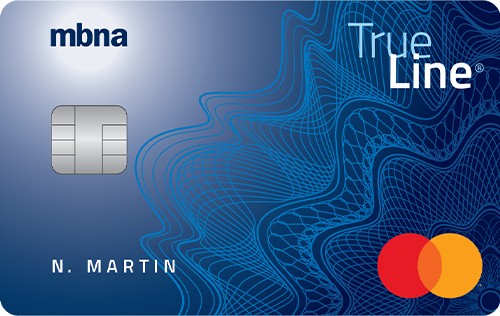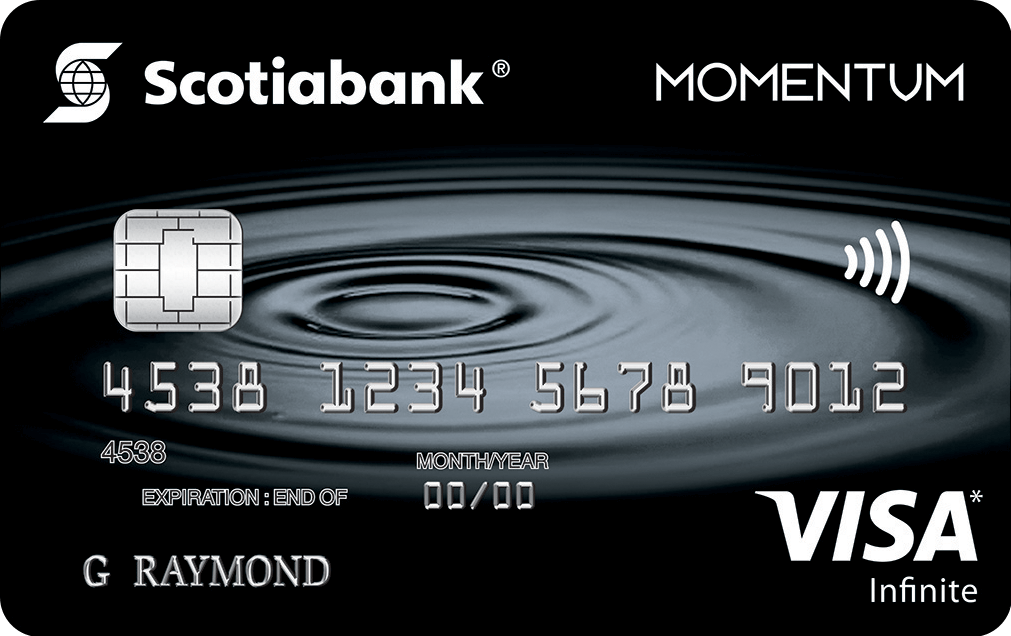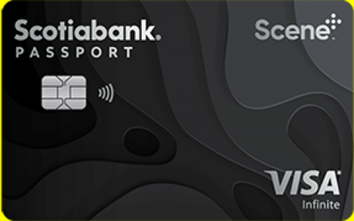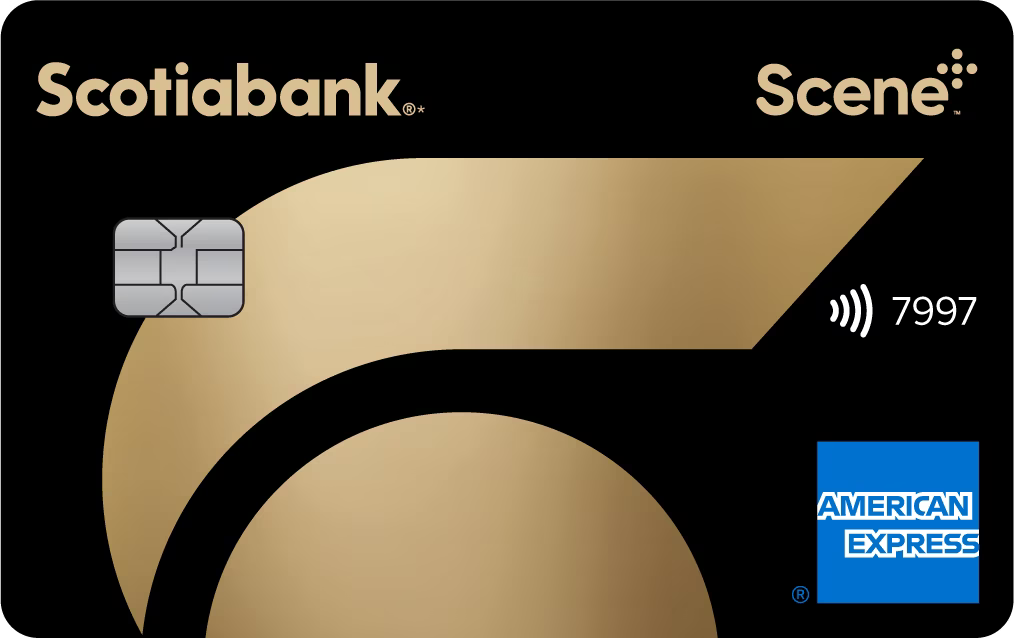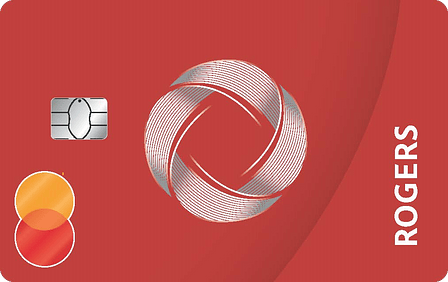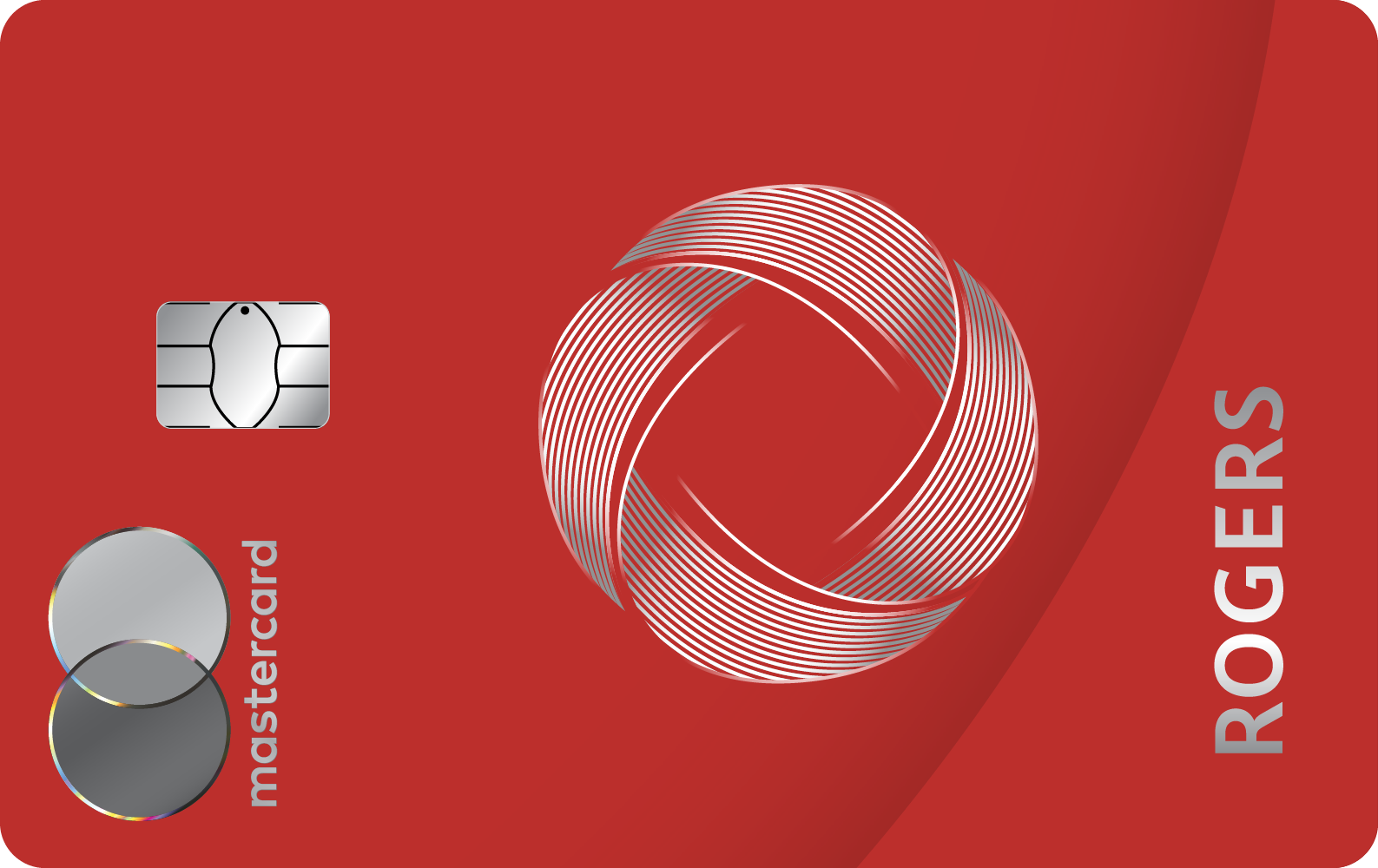2025's Best Secured Credit Cards for Canadians
Find the best secured credit card to help you rebuild your credit and improve your overall credit score.
 CashSurge
CashSurge
CashSurge increases the value of credit cards by introducing an additional cash bonus. We'll pay you up to $150 every time you are approved for a CashSurge credit card.
What is a secured credit card?
If you have bad credit or little to no credit history at all and you’re ineligible for most credit cards, you can still improve your credit score with a secured credit card.
Secured cards require you to put down a security deposit that is equal to or less than the limit of a card, depending on your credit history. The deposit acts as a security for lenders, protecting them against missed bill payments. As a credit card user with a low credit score, credit card providers view you as a risky borrower. With a secured credit card, you have the advantage of using the deposit in case you can’t pay your credit card bill.
In general, secured cards are usually not associated with the best rewards programs or the lowest interest, so you should always think of secured cards as a stepping stone to other, better credit products. Once you’ve improved your score, you can close your secured credit card account, get your deposit back, and apply for a credit card with more benefits.
Best Secured Credit Card for Building Credit in 2025
It can be challenging to get approved for a credit card if you have a rocky credit history. But to build good credit, you need access to credit. It's a bit of a conundrum. How do you break the cycle?
A secured credit card is an excellent first step. This handy little product can benefit those who are new to credit or need to improve their credit, and it works much like a standard credit card.
Cardholders can usually pay bills, purchase items in-store and online, and access a credit limit. However, the credit limit is determined by a deposit set by the cardholder, which the credit provider will draw from if you don’t pay your bills.
The cardholder is responsible for paying their statement each month and will also owe interest if they carry a balance. With each payment made on time, the positive information is reported to the credit bureaus in Canada and should slowly build or increase the cardholder's credit score.
Over time, the cardholder may qualify for unsecured products and should be able to get their initial deposit back.
We compared secured credit cards in Canada and ranked the cards that provided the highest value. Though, in this case, we felt that annual rewards and savings were not the most important benefits. Cardholders would get the best value from a no-fee card that focused strictly on building credit.
| First-year value* | Annual fee | Top features | |
|---|---|---|---|
|
WINNER |
$180 | $60 | Earn cash back on all your purchases. |
|
Runner up |
$0 | $0 | Rebuild credit and enjoy purchase protection insurance. |
|
Runner up |
$0 | $59 | If you keep up with your card payments your credit score will improve. |
*The RATESDOTCA Best of Finance methodology assumes the cardholder spends an average of $2,000 a month on their card to determine the first-year value. The calculation includes all welcome bonuses and promotional offers at the time of publishing.
Winner: Neo Secured Mastercard
Neo Secured Mastercard allows you to start with as little as $50 in security funds, bypassing hard credit check. That’s because your credit limit is equal to the amount of security funds you set aside.
The offering comes with guaranteed approval and no annual fees, allowing you to build your credit history – provided you continue to pay on time. And thanks to Neo Financial’s Insights app, you can get a complete view of your spending habits, including your purchases, your average, and details by category.
You can also make use of flexible credit limits and earn cashback rewards on all your purchases, including:
- 1% cashback on essential gas and groceries, no matter where you pay for them.
- Up to 5% cashback on food delivery, dining out, rideshare and streaming.
Finally, you can enhance your rewards with perks, flexible monthly subscriptions that boost your cashback and unlock extra benefits for your account.
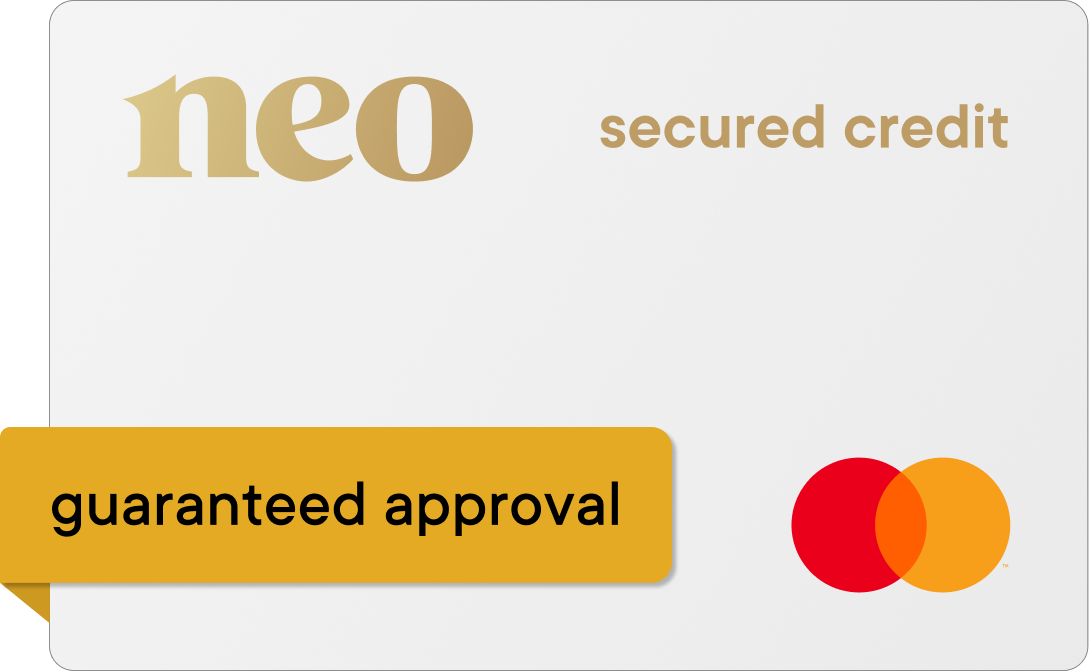
Annual fee
$60
Welcome bonus
Earn up to 15% cashback on first-time purchases at Neo partners.
Offer expiry date: Ongoing offer
Rewards
You can earn:
- An average of 5% cash back at Neo partners
- Up to 4% cash back on gas and groceries
- 1% cash back everywhere else
Earning potential
How does this card stack up to other rewards credit cards? We crunched the numbers using our Best of Finance methodology to see how much an average Canadian could earn over a 12-month period.
Rewards earned over a 12-month period + Welcome Bonus = $240 + $0 = $240
Annual fee = $60 ($5/ month)
Total earned over a 12-month period (rewards minus annual fee) = $180
Benefits
- Guaranteed approval with no hard credit check
- Unlimited, instant cashback with no annual fee
- Build credit history safely with on-time payments
- Free credit reporting
- Set your own credit limit with a security deposit of as little as $50
- Upgrade your card with benefits across travel, gas and grocery, dining, and more
- Get up to 4% cashback on all purchases at Shell gas stations and convenience locations when you use your card.
Insurance coverage
- Zero Liability Protection
Runners-up: Best Secured Credit Card for Building Credit
No-Fee Home Trust Secured Visa* Card
The No-Fee Home Trust Secured Visa* Card allows cardholders to build or rebuild their credit for no annual fee. Cardholders can set their credit limit based on a deposit ranging from as low as $500 to as high as $10,000. Shop online, pay bills and use the card anywhere Visa is accepted — just like an unsecured card.
If you keep up with the payments, your credit rating should improve, whether you are just starting to build your credit, or your credit score needs some repair.
Annual fee
$0
Benefits
- As long as you keep up to date with your payments, your credit rating will improve
- Choose deposit range ($500 - $10,000)
- Shop online, pay bills and set up accounts online
Insurance coverage
- Purchase Protection - 90 Days
Home Trust Secured Visa Card
As an alternative to the No Fee Secured Visa Card, Home Trust also offer a standard Home Trust Secured Visa Card, which comes with a small annual fee of $59 and a lower interest rate of 14.90%. In addition, your balance would need to be paid off in full each month.
As is the case with No Fees option, you can use this card in more than 200 countries and territories, with an immediate and reliable method of payment anywhere in the world. You also have the option to use contactless technology wherever it’s offer – to shop more safely.
Annual fee
- $59
Insurance coverage
- Purchase Protection - 90 Days
Rates, product information and reward estimates are subject to change at any time and do not constitute financial advice. This post was not sponsored. RATESDOTCA may receive a referral fee from our partners or affiliate links featured on the site; however, our editorial choices are objective and free from bias. The opinions expressed in this article are purely those of RATESDOTCA; thus, the credit card issuers and partners are not responsible for any editorials or reviews that may appear. Please visit the associated brand’s website for complete and current terms and conditions on any product or service mentioned. The information in this article is accurate as of the date of this posting, January 31, 2025. Read our full disclaimer.

4 tips for using a secured credit card
If used the right way, a secured credit card can help you rebuild your credit and become eligible for a higher limit and better rewards credit card in the future.
Here's how to make your secured credit card work for you:
- Make minimum payments: Its important to pay the minimum payment on your secured credit card statement on time, as secured credit cards have high interest rates. You will only be able to improve your credit score by responsibly paying off your credit card balance.
- Track your spending: You should regularly track your credit card statement to be aware of all the purchases you're making and also the due date for the minimum payment. You can set up mobile/email alerts, so you can track all your credit card activity and understand your spending.
- Pay in full: lf you have the means to pay off the total balance owing on your credit card statement, you should always do so. This can help improve your credit as it signals to lenders that you can manage to handle borrowed credit and pay it off timely.
- Use the secured credit card: Just because you have bad credit, doesn't mean that you have to limit your credit card usage. In fact, if you don't use credit its going to be more difficult to improve your credit score. Try to responsibly use your credit card to cover transactions you can afford and pay off your balance before your due date. Don't overspend, and be mindful of your purchases and credit score. A healthy payment history on your secured credit card will help you repair your credit. You should check your credit score frequently and track your progress.
Frequently asked questions about secured credit cards
Applying for a secured credit card? Here’s everything you need to know about secured credit cards.
What are the requirements for a secured credit card?
If you have no credit history in Canada or a low credit score, you are eligible to apply for a secured credit card. Unsecured credit cards may require a higher credit score (600 or more), so secured credit cards are a better option if you’re looking to rebuild or establish your credit history. To obtain a secured credit card, you are required to put down a security deposit. The security deposit can range from $200 to $1,000 depending on your current credit score and credit requirements. This security amount determines your secured credit card’s limit and acts as insurance against your spending.
Do you need income for a secured credit card?
Typically, yes. Credit card lenders may not always require you to have an income for a secured card, but if you’re able to show some form of income, you have a higher chance of being approved. Your ability to pay off your credit card bill is tied directly to your income, making income a determining factor for your approval.
What is the difference between a secured credit card and a prepaid credit card?
It is easy to get secured credit cards and prepaid credit cards confused. The main feature that differentiates them is their function. When you use a prepaid card, you ‘prepay’ the amount you are intending to spend. It is a reloadable credit card, and it doesn’t help you rebuild your credit like a secured credit card does. If you want to avoid using traditional credit or debit cards, you can consider applying for a prepaid credit card. Prepaid cards are relatively easier to obtain and require no credit checks, but they won’t help you with your financial future.
If you want to improve your credit score, a secured credit card is a better option. A secured credit card functions more like a traditional credit card, but comes with the requirement of depositing a security amount.
How will a secured credit card help me rebuild my credit?
When you responsibly use a secured credit card, your credit card activity is reported to major credit bureaus like TransUnion and Equifax. As you pay off your secured credit card bill regularly, you begin to generate a positive impact on your credit, creating a good credit history. As long as you don’t miss payments, you can continue seeing a slow and steady increase in your credit score.
With your security deposit in place, you don't have to worry about debt collectors contacting you for missed payments on the card, but any late payments will hurt your credit score. Use your secured credit card in responsibly to rebuild your credit history.
Can I get my deposit back from a secured credit card?
When you apply for a secured credit card, you lay down a deposit which you are guaranteed to get back so long as your secured credit card bill is paid off when you close the account. Once you’ve decided that your secured credit card has helped you rebuild your credit score, you can close or upgrade your credit card, and this will allow the lender to refund your security deposit.
Best credit cards in other categories
- All the Best Credit Cards in Canada
- Best No-Fee Cash Back Credit Card
- Best No-Fee Travel Credit Card
- Best Overall Travel Credit Card
- Best Overall Cash Back Credit Card
- Best Low Interest Credit Card
- Best Balance Transfer Credit Card
- Best Credit Card for Young Professionals
- Best Student Credit Card
- Best Credit Card for Earning Travel Points
- Best Credit Card With No Foreign Transaction Fees
- Best Family Credit Card for Gas and Groceries
- Best Credit Card for Subscriptions
- Best No-Frills Cash Back Credit Card



